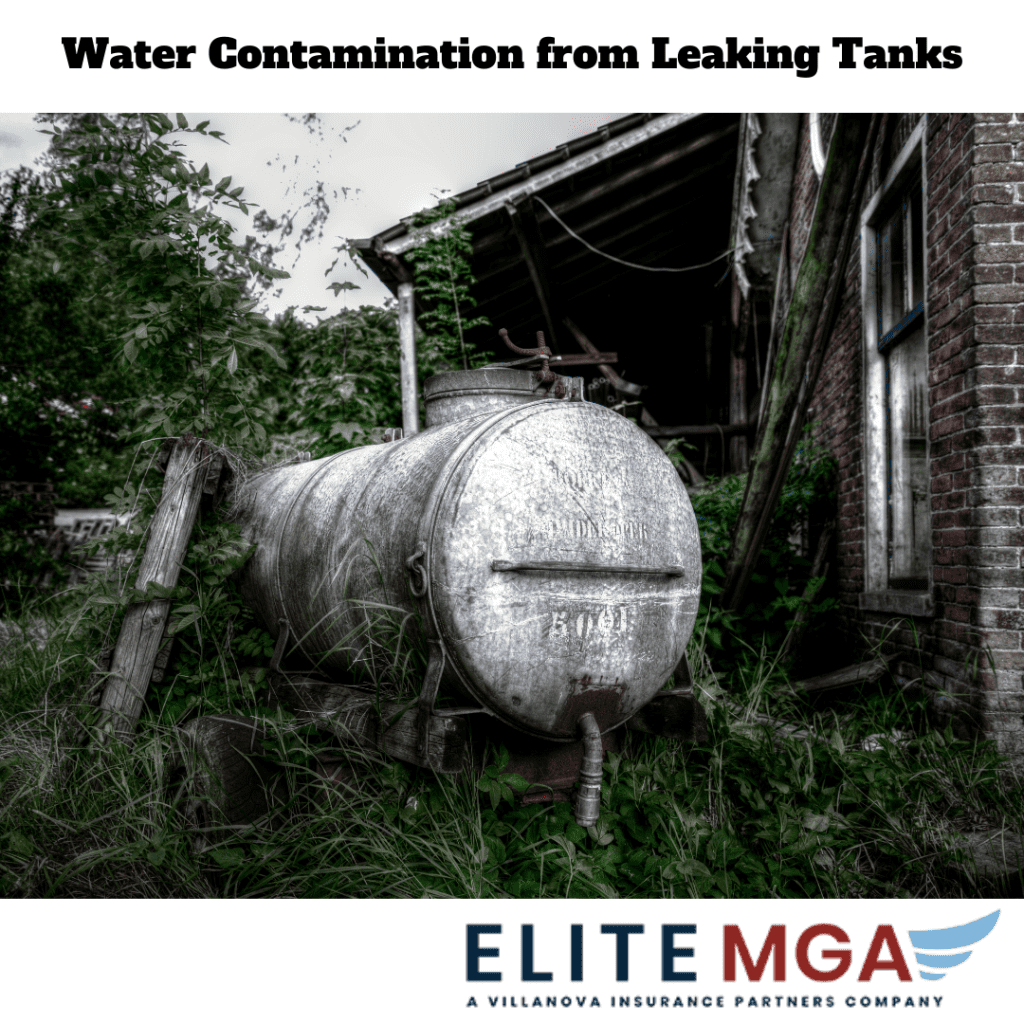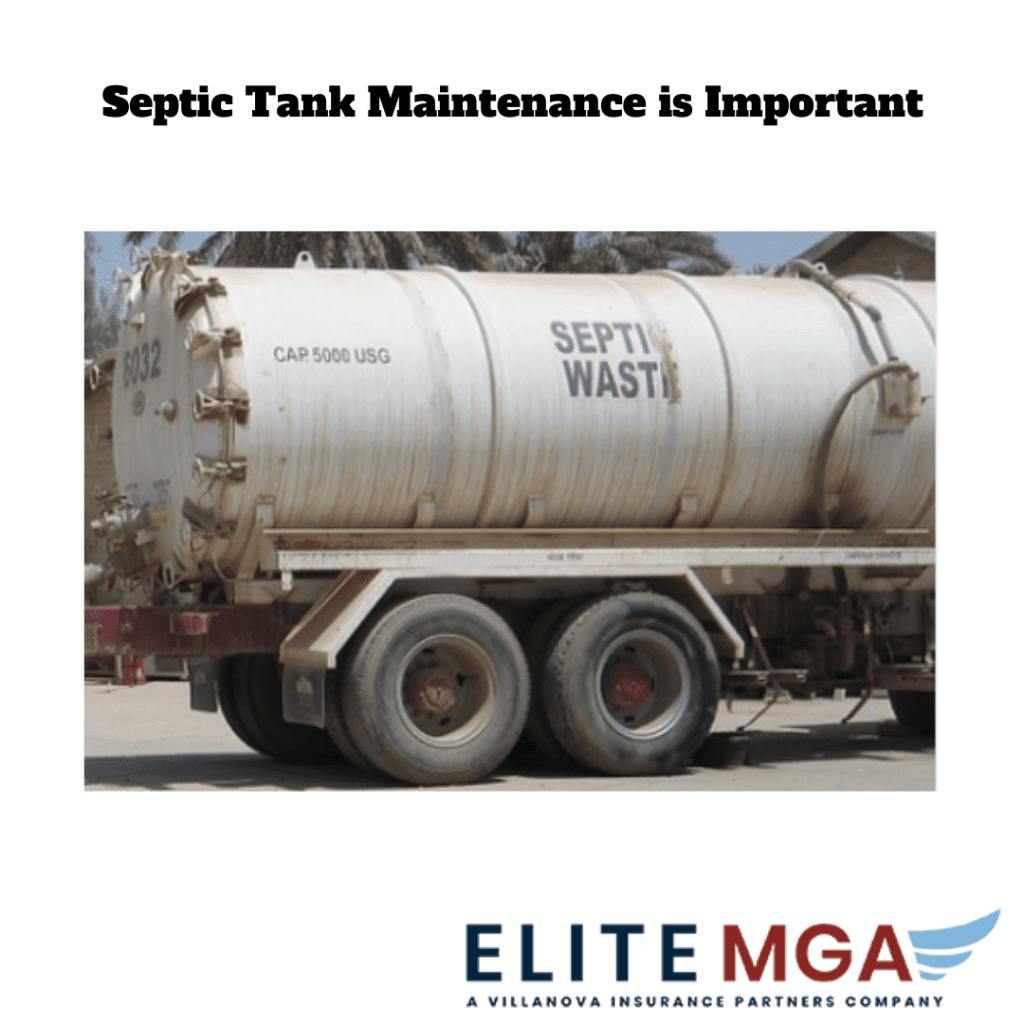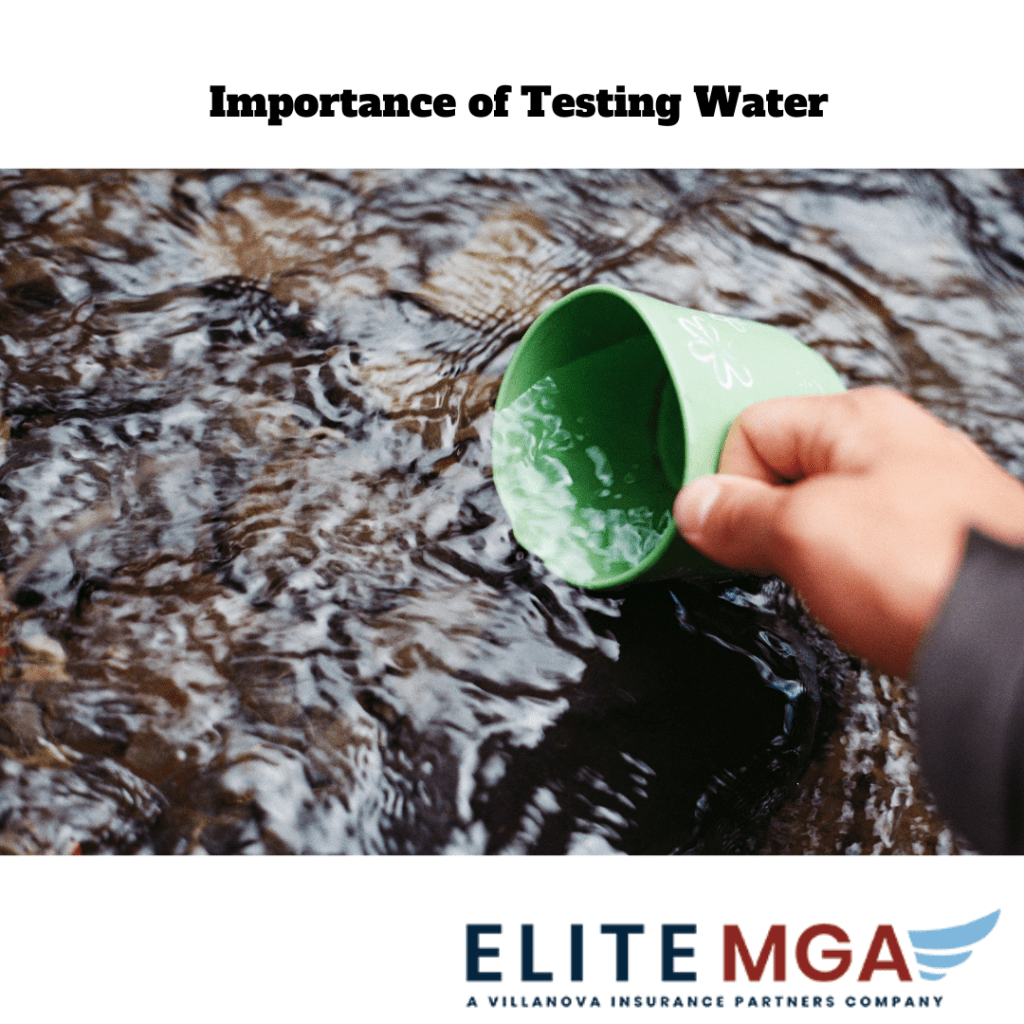Over 20 million homes in the United States utilize septic tanks when they are unable to connect to a traditional public sewer system, and that number continues to grow as more people move outside of major metropolitan areas. With such widespread use of septic tanks, it is extremely possible that some septic tanks are improperly installed. A malfunctioning septic tank can become a ticking time bomb for owners, especially considering how difficult to access some of these systems can be. As home inspectors, it is important to cover yourself with additional septic and water testing insurance as part of your Errors and Omissions (E&O) Insurance coverage in case of faulty septic or water lines.
Septic & Water Testing Insurance
Why is it Important to Test Septic and/or Water Quality?
Although the American Society of Home Inspectors’ (ASHI) official standard operating procedures do not require home inspectors to inspect septic tanks and related water quality issues, many clients ask inspectors to review the quality of the septic system and water treatment in their home. If a leaking septic tank or waterline is overlooked, it can cost the client thousands of dollars in property damage and cleaning fees, and also will likely require the installation of a new septic system. When this happens, clients often blame the inspector for not catching the problem with their septic systems or water quality and will expect the inspector to foot either a portion or the entirety of the bill.

Become a Certified Water Quality Tester
 There are several steps to becoming a certified Water Quality Tester. The first step is to pass a test based on a series of coursework designed to teach the hopeful Water Quality Tester about how to properly test water quality. The second step is to obtain certification. There are several ways to obtain certification, and there are many online and in-person companies that offer these services for a small fee. These certifications typically last for several years. There are many benefits for home inspectors to get certified as water quality testers. First and foremost, customers will typically find you more credible than inspectors who do not have certification. It also gives you the knowledge and confidence to correctly identify issues with water quality when conducting a home inspection, limiting your liability. It also gives you and your business a competitive advantage above other inspectors who may not have been certified in water quality testing.
There are several steps to becoming a certified Water Quality Tester. The first step is to pass a test based on a series of coursework designed to teach the hopeful Water Quality Tester about how to properly test water quality. The second step is to obtain certification. There are several ways to obtain certification, and there are many online and in-person companies that offer these services for a small fee. These certifications typically last for several years. There are many benefits for home inspectors to get certified as water quality testers. First and foremost, customers will typically find you more credible than inspectors who do not have certification. It also gives you the knowledge and confidence to correctly identify issues with water quality when conducting a home inspection, limiting your liability. It also gives you and your business a competitive advantage above other inspectors who may not have been certified in water quality testing.

What Can Cause Water Contamination?
There are many different ways in which water can become contaminated, all depending on the location of the home or building and the arrangement of its water and septic systems. First and foremost, leaking septic tanks and water lines from toilets and other appliances can seep into the surrounding ground, growing in size over time and eventually leaking into sources of clean water, such as ground wells. In some areas, industrial waste can leak into groundwater as well, usually in the form of toxic chemicals that may erode away water and septic lines. Agriculture and lawn-care products, usually high in toxic chemicals, can also impact the quality of water around a home as well, as they can mix with rain and groundwater.
Getting Septic Inspection Certified
Much like becoming certified in water quality testing, becoming certified in septic inspection usually involves several steps. It is important to become certified in septic inspection, as many of the problems associated with septic systems go unnoticed until it is too late to easily address the problem. Like water quality testing, many different organizations offer septic inspection courses, either in tandem with home inspection certification courses or individually. Courses on septic inspection cover terminology related to septic systems, tools required to inspect the systems, how to determine plumbing systems quality, evaluating septic components for problems, measuring flow to the septic tank, and how to determine the volume of the tank. This affords you the knowledge and skills to confidently address any septic tank concerns with your client, cover yourself from liability, and even charge the client extra for inspecting their septic system.

Common Causes of Septic System Failure
There are many reasons why a septic system may fail. Here are some major causes:
- Improper Design and/or Installation: When septic systems are not designed or installed with adequate space and the correct type of soil for drainage purposes, it can affect the flow of waste into the septic system and the soil surrounding it. If the soil conditions are not right, the soil can compact around the tank, preventing wastewater from dispersing properly into drainage fields.
- Lack of Maintenance to Septic Systems: Although all major appliances require regular maintenance, many home owners either perform too little maintenance on their system or none at all. As a result, solids in the septic system, which should collect in the tank, end up blocking the septic line, causing backups and flooding. Tanks should be pumped regularly, generally every few years, to avoid problems and ensure that waste is flowing normally through the system.
- Excessive Use of Water: Septic tanks are installed to accommodate a small amount of people per household. For example, a house that has a septic tank that is rated to accept the wastewater of two adult occupants is sold to a new owner that has four people in their household. The septic tank cannot accept the greater amount of wastewater, which can lead to backups in the house and yard around the tank. Leaking appliances often contribute to this problem and can be sometimes difficult to locate.
- Physical Damage: Depending on the location of the septic tanks, water lines, and related systems, surface activity above the tank can end up damaging it. For example, driving or paving above a septic tank can compress the soil around the tank and even the tank itself. Pipes and connected water lines can also be damaged or moved via surface activities, which can lead to further leaks or clogs in the system. Even the growth of tree and plant roots can hinder septic tanks and damage them.

Health and Safety Concerns Regarding Septic/Water Testing
One of the major concerns with septic and water testing is the impact on the surrounding environment. By inspecting and testing these systems, the goal is to limit the impact on the surrounding environment. Many households rely on underground water sources, such as wells, for drinking and bathing water. Leaking septic systems and improperly installed systems can end up leaking liquid waste into these sources of drinking water, leading to bacteria and pathogens within those water sources. In similar cases, some homes have septic tanks systems that are in close proximity to surface water, such as ponds or lakes. These water sources often involve recreational activities, such as fishing and swimming, and buildups of liquid waste from septic systems can often lead to illness and bacterial buildups. In addition, septic tanks that leak above ground can cause marsh-like conditions in normally dry soil areas, which can create large areas of bacteria-infested mud, creating an unsafe environment for people and wildlife in the area.
Health and Safety Concerns Regarding Septic/Water Testing
Water Testing Inspection Insurance protects you, your employees, and your business from lawsuits or claims that may arrive days, weeks, months, or even years after services have been rendered. Contact EliteMGA to add septic and water testing inspection insurance to your home inspector insurance policy.

